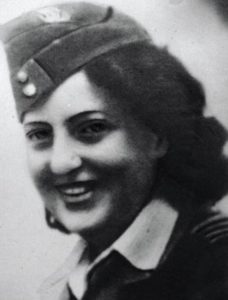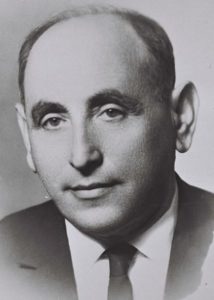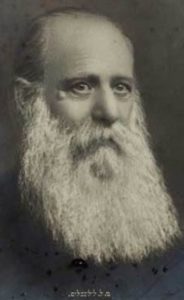First Ladies of the IDF
 Sara “Surika” Braverman (1918-2013) was born in Romania. She joined Hashomer Hatzair, the Zionist youth movement, when she was just 9 years old. She made aliyah at 20 and co-founded Kibbutz Shamir in the Galilee. She served with the pre-IDF Haganah, and then joined its elite special forces unit, the Palmach. During World War II, she agreed to join a group of soldiers to form a “Jewish commando” unit that would parachute into Nazi-occupied Europe with the British Special Operations Executive (SOE). The mission was to go undercover and assist in underground operations while rescuing Allied pilots and helping Jews escape. Out of 240 that volunteered, 110 were taken for training in Egypt, and 33 were ultimately selected, including Braverman.
Sara “Surika” Braverman (1918-2013) was born in Romania. She joined Hashomer Hatzair, the Zionist youth movement, when she was just 9 years old. She made aliyah at 20 and co-founded Kibbutz Shamir in the Galilee. She served with the pre-IDF Haganah, and then joined its elite special forces unit, the Palmach. During World War II, she agreed to join a group of soldiers to form a “Jewish commando” unit that would parachute into Nazi-occupied Europe with the British Special Operations Executive (SOE). The mission was to go undercover and assist in underground operations while rescuing Allied pilots and helping Jews escape. Out of 240 that volunteered, 110 were taken for training in Egypt, and 33 were ultimately selected, including Braverman.
 Another inductee was Hanna Szenes (1921-1944), originally from Hungary. Her parents noted her bright mind early on, and put her in a prestigious private school. However, Jewish students had to pay triple the tuition, and Szenes nearly dropped out because she couldn’t afford it. (The school later reduced her tuition as she was a gifted student.) Such discrimination led her to become a passionate Zionist. Upon graduation, she made aliyah and studied at the Nahalal Girls’ Agricultural School. Szenes soon joined a kibbutz, as well as the Haganah. In 1943, she joined the British Women’s Auxiliary Air Force and became a paratrooper. She was then recruited by the SOE and met Sara Braverman. In March of 1944, they were air-dropped in Yugoslavia. Their mission to go into Hungary was called off, but Szenes went anyway with part of the group. They were captured and tortured. Szenes refused to give up any information, and was ultimately executed by firing squad. Her remains were returned to Israel in 1950, and her diary and inspiring poems (in both Hebrew and Hungarian) were posthumously published and became hugely popular. Meanwhile, Braverman had stayed behind and joined Josip Tito’s underground partisans. When her mission ended, she was smuggled out through Italy and returned home. At the start of Israel’s War of Independence, Braverman founded the IDF Women’s Corps at the request of Chief of Staff Yaakov Dori. She recruited 32 other women and the group trained together in Tel Aviv. She went on to promote IDF service among Israeli women for decades to come, and is today known as the “IDF’s First Lady”.
Another inductee was Hanna Szenes (1921-1944), originally from Hungary. Her parents noted her bright mind early on, and put her in a prestigious private school. However, Jewish students had to pay triple the tuition, and Szenes nearly dropped out because she couldn’t afford it. (The school later reduced her tuition as she was a gifted student.) Such discrimination led her to become a passionate Zionist. Upon graduation, she made aliyah and studied at the Nahalal Girls’ Agricultural School. Szenes soon joined a kibbutz, as well as the Haganah. In 1943, she joined the British Women’s Auxiliary Air Force and became a paratrooper. She was then recruited by the SOE and met Sara Braverman. In March of 1944, they were air-dropped in Yugoslavia. Their mission to go into Hungary was called off, but Szenes went anyway with part of the group. They were captured and tortured. Szenes refused to give up any information, and was ultimately executed by firing squad. Her remains were returned to Israel in 1950, and her diary and inspiring poems (in both Hebrew and Hungarian) were posthumously published and became hugely popular. Meanwhile, Braverman had stayed behind and joined Josip Tito’s underground partisans. When her mission ended, she was smuggled out through Italy and returned home. At the start of Israel’s War of Independence, Braverman founded the IDF Women’s Corps at the request of Chief of Staff Yaakov Dori. She recruited 32 other women and the group trained together in Tel Aviv. She went on to promote IDF service among Israeli women for decades to come, and is today known as the “IDF’s First Lady”.
Words of the Week
The gravest sin for a Jew is to forget what he represents.
– Rabbi Abraham Joshua Heschel



